
Biotin
- Also known as:
- Vitamin B7
About
Biotin, also known as vitamin B7 or vitamin H, is a water-soluble vitamin that plays a crucial role in various metabolic processes in the body. Biotin is often referred to as the 'beauty vitamin' and is recognised for its potential benefits for hair and skin. However, its functions extend far beyond cosmetic improvements.
In this article you can read about:
- What is biotin and what benefits does it have
- The effect of biotin on hair
- The role of biotin in mucous membranes
- Recommended daily doses
- Possible side effects of biotin
What is biotin?
Biotin is part of the vitamin B complex and is necessary for the metabolism of carbohydrates, fats and proteins.
It acts as a coenzyme and facilitates various enzymatic reactions that are important for energy production and the synthesis of fatty acids.
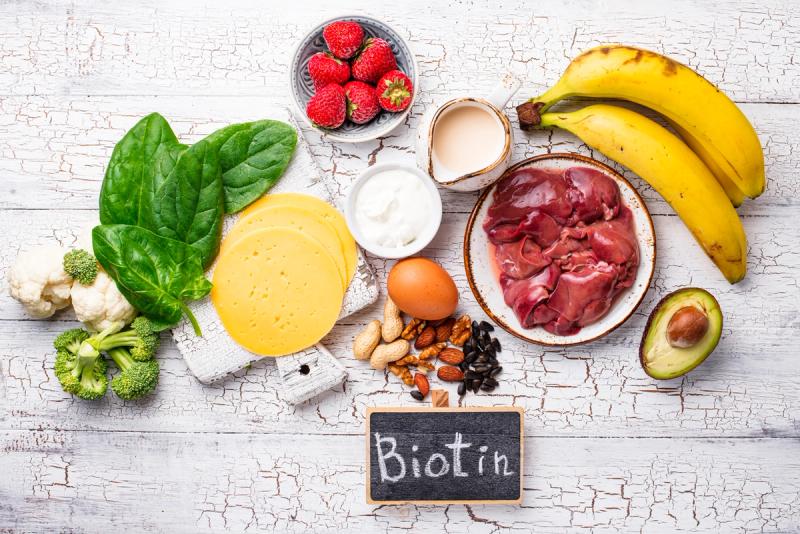
Are biotin, vitamin B7 and vitamin H the same thing?
Biotin is also called vitamin B7 or vitamin H. It is a water-soluble enzyme that belongs to the family of B vitamins. This means that the body can get rid of any excess biotin.
Other names for biotin:
- Vitamin B7
- Vitamin H
What are the benefits from biotin?
There is a reason why biotin is called the beauty vitamin. Biotin is said to play a crucial role in maintaining healthy hair and skin. Additionally, biotin can help maintain the normal functioning of the nervous system and contribute to normal energy metabolism in the body.
Biotin can help to:
- contribute to normal energy turnover
- contribute to the normal functioning of the nervous system
- contribute to normal metabolism of macronutrients
- contribute to normal psychological functioning
- help maintain normal hair
- help maintain normal mucous membranes
- help maintain normal skin
Biotin for hair
Biotin is important for the production of keratin, a protein that forms the structural basis of hair and skin. Adequate biotin levels ensure the proper synthesis of keratin, which can contribute to stronger, healthier hair. Additionally, biotin is said to help support healthy hair growth.
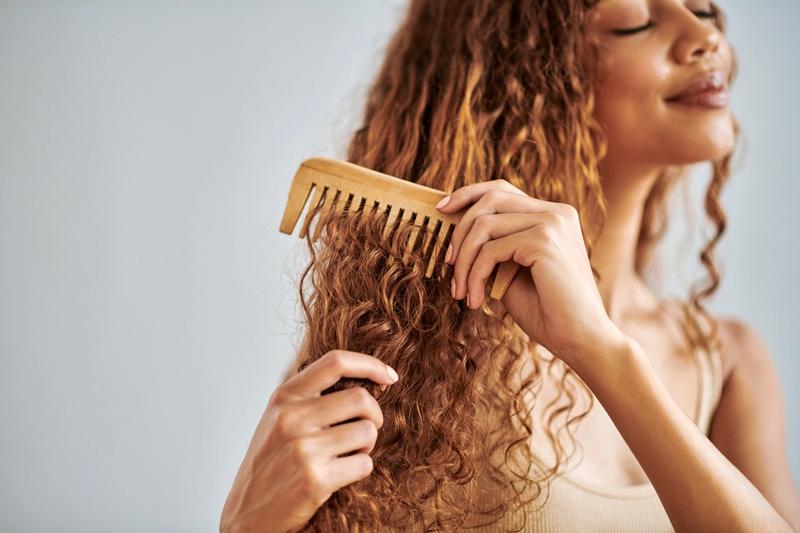
Source: Examine
If you suspect that you are not getting adequate levels of biotin and feel that your hair could use a boost, it may be worth trying a dietary supplement such as 4HER Hair.
It is an advanced supplement for hair and nails, with over 20 active ingredients.
The role of biotin in mucosal health
When we think of biotin (vitamin B7), we often associate it with promoting healthy hair and skin. However, the benefits of biotin extend far beyond cosmetic improvements.
One of its lesser-known but equally important roles is that biotin can help support the health of the mucous membranes throughout the body.
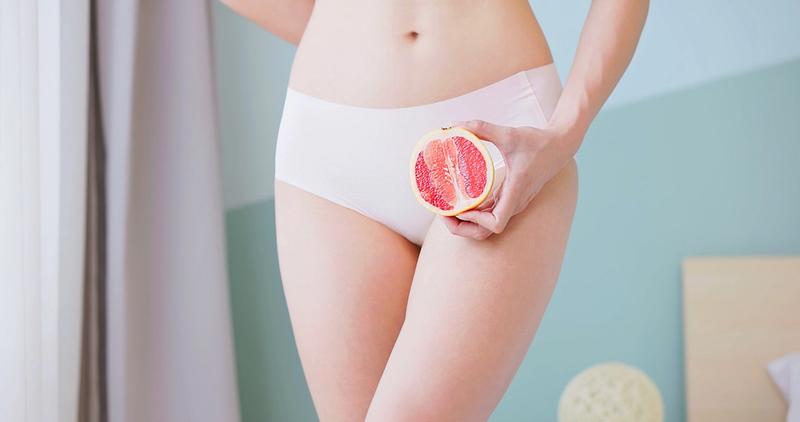
Mucous membranes, also called mucosae, are thin, moist layers of tissue that cover various cavities and structures in the body, including the respiratory, digestive, urinary, and reproductive tracts.
Biotin is important for the maintenance of these mucous membranes and also supports the synthesis of fatty acids, which are essential components of cell membranes, including those of the mucosal cells.
Adequate biotin levels can ensure the normal function of mucous membranes, allowing them to effectively fulfill their protective role.
Many women in menopause and those over 50 often experience that their mucous membranes in the body feel dry. A common menopausal problem that many women experience is dry mucous membranes in the abdomen, but also problems with dry mouth or dry eyes. But the fact is that these problems can start both before the menopause and often worsen afterwards with increasing age.
If you feel that you have dry mucous membranes, it may be worth trying a food supplement with biotin:
4HER 50+ is for women over 50 who, among other things, experiencing problems with mucous membranes, bone health or energy.
Which foods contain biotin?
Biotin is naturally found in a variety of foods, including cooked eggs, nuts, seeds, whole grains, and some vegetables such as sweet potatoes and spinach.
It can also be obtained through dietary supplements, which are widely available in various forms such as biotin tablets and capsules. Additionally, certain bacteria in the gut can produce small amounts of biotin.
// Did you know that
If you regularly use raw eggs in dishes such as mayonnaise, Caesar dressing, protein shakes, or egg toddies, this may affect your biotin levels: Raw eggs contain a protein called avidin, which can bind to biotin and inhibit its absorption. However, boiled eggs do not pose this problem because the avidin is inactivated during the heating process.

Source: Harvard T.H. Chan School of Public Health
How much biotin should you get?
EFSA (the European Food Safety Authority) has determined that an adequate intake of biotin for adults is 40 micrograms per day.
Group/age - Adequate intake per day
- Infants 7–11 months: 6 micrograms
- Children 1–3 år: 20 micrograms
- Children 4–10 år: 25 micrograms
- Children 11–17 år: 35 micrograms
- 18+: 40 micrograms
- Pregnant women (18+): 40 micrograms
- Breastfeeding women (18+): 45 micrograms
Source: EFSA (2019)
Can you get too little biotin?
Biotin deficiency is relatively uncommon in the Western world, as the vitamin is widely available in many foods and can also be produced by gut bacteria.
However, certain factors such as prolonged use of antibiotics, excessive alcohol consumption, or genetic disorders that impair metabolism can contribute to insufficient intake.
Source: Examine
Can you get too much biotin?
High doses of biotin supplements can interfere with some laboratory tests, leading to inaccurate results. There are no documented side effects of overdosing and, as biotin is a water-soluble vitamin, the body can dispose of the excess itself, i.e. it is excreted in the urine.
Source: Harvard T.H. Chan School of Public Health
Upper limit of daily intake
There is no complete information on what is a tolerable upper intake level (UL) for biotin, as there is limited evidence of adverse effects of high dietary intake. However, it is advisable to stick to recommended doses to avoid potential adverse effects.
Summary
While you can benefit from biotin for both hair and skin, the vitamin is beneficial for the whole body, from the inside out!
Biotin is found in many foods, and to naturally increase your intake of biotin, you should especially include legumes, cooked eggs and liver in your diet.
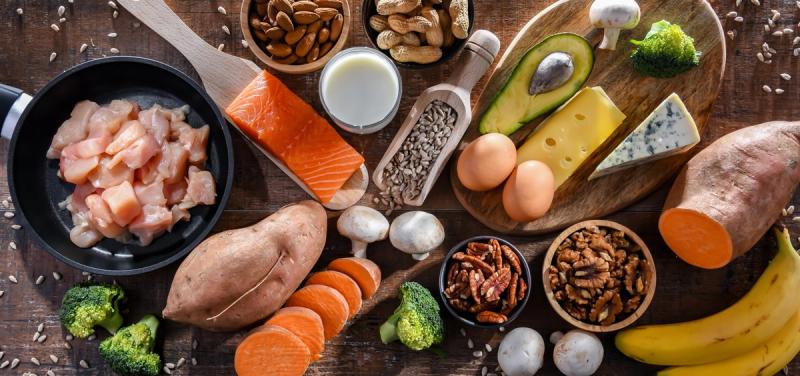
If you want to increase your biotin intake, you can also consider taking biotin (vitamin B7) supplements daily.
Supplements with biotin from 4HER: Hair, Menopause and 50+
To capitalise on the health benefits of biotin, we have included this important substance in several products from the 4HER range that are tailored to women's needs. Find your favourite below!
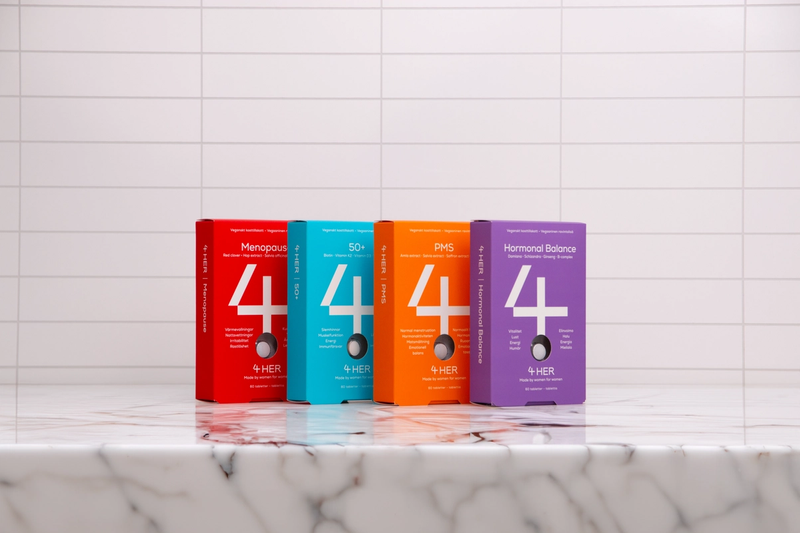
- 4HER Menopause provides the body with effective active ingredients to make menopause more comfortable and is used by thousands of women every day across the Nordic region.
- 4HER Hair is a specially developed dietary supplement for women, designed to strengthen and maintain hair and nails daily.
- 4HER 50+ is for women over 50 who experience problems with mucous membranes, bone health, lack of energy or immune system. With carefully selected ingredients with positive effects on mature women's health.